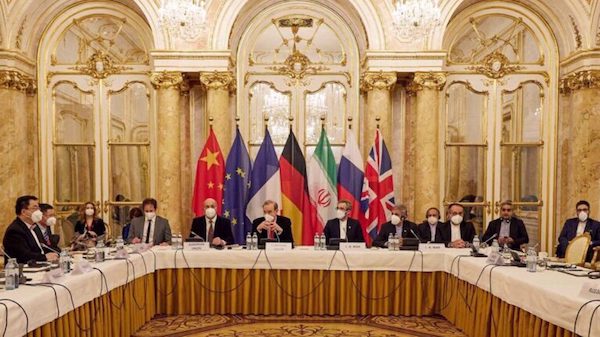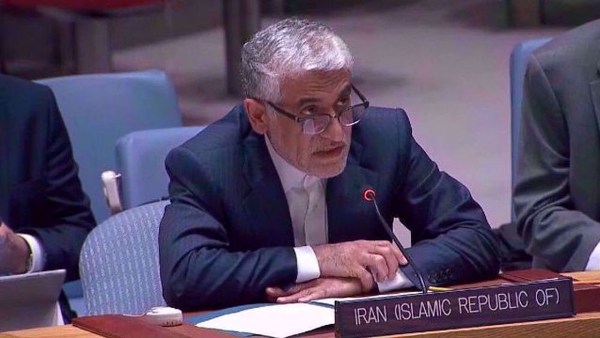In reaction to Washingtonís restoration of a sanctions waiver, Iranís top security official says a "show" of lifting sanctions is not "constructive" as Iran needs to feel "real" economic benefit of any deal amid the Vienna talks.

"Real, effective and verifiable economic benefit for #Iran is a necessary condition for the formation of an agreement," Secretary of Iranís Supreme National Security Council Ali Shamkhani wrote in a tweet on Saturday.
He added, "The show of lifting sanctions is not considered constructive. #ViennaTalks"
On Friday, US Secretary of State Antony Blinken restored several sanctions waivers related to the Joint Comprehensive Plan of Action (JCPOA), commonly known as the Iran nuclear deal, whose revival, three years after the US walked away from it, is the subject of ongoing talks in the Austrian capital.
The so-called "civ-nuke" waivers were ended during the administration of former US president Donald Trump as part of his anti-Iran "maximum pressure" campaign.
The US State Department said the restoration of the sanctions waivers was designed to "facilitate discussions that would help to close a deal on a mutual return to full implementation of the JCPOA and lay the groundwork for Iranís return to performance of its JCPOA commitments."
Earlier on Saturday, Iranian Foreign Minister Hossein Amir-Abdollahian said the waivers are not enough.
"In our view, goodwill in practice means that something tangible shall happen on the ground," Amir-Abdollahian emphasized.
"The lifting of some sanctions can, in the true sense of the word, translate into the goodwill that the Americans are talking about. What happens on paper is good, but not enough," he added.
Trump launched the maximum pressure policy against Iran in 2018 after he pulled the US out of the JCPOA, claiming he could "get a better deal" than the one reached under his predecessor Barack Obama.
The former American president declared that he intended to compel Iran to negotiate a deal that would restrict the Islamic Republicís ballistic missile program and its influence in its own region.
Iran flatly refused to negotiate a "Trump deal" and rejected his repeated calls to hold talks at any level. Amid soaring tensions with the tightening of US sanctions, Iran started in 2019 to reduce its nuclear obligations under the deal as per its contractual rights.
Late in November last year, the JCPOA participants resumed the Vienna talks for the first time under Iranís new president Ebrahim Raeisi. Since then, Iran has repeatedly emphasized that it seeks a "good agreement" in the Austrian capital.
The talks were launched last April over US President Joe Bidenís pledge to rejoin the JCPOA and rescind Trumpís "failed maximum pressure" campaign.
Over a year into his presidency, Biden has failed to re-enter the nuclear pact. Instead, he has kept Trumpís sanctions in place while adding new ones as well.
LINK: https://www.ansarpress.com/english/26728
TAGS:






























 Iran rejects Reuters report on deal in Vienna talks as effort to boost Western sideís standing
Iran rejects Reuters report on deal in Vienna talks as effort to boost Western sideís standing 




